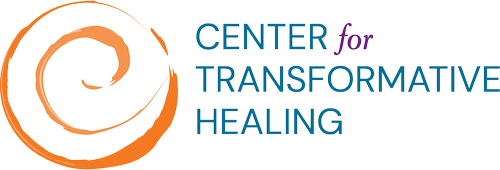Workshops at CTH
At CTH, we're proud to offer a range of continuing education programs that are approved by the National Board for Certified Counselors (NBCC). Our programs are designed to meet the diverse needs of counseling professionals, providing them with the latest insights and practical skills needed in today's dynamic mental health landscape. Please refer to this page to see our upcoming workshops.
Upcoming:
Stress, the Brain, and Health: Practical Tools for Mental-Health Practitioners with Dr. Joseph Arpaia
Workshop #3 - Stress, the Brain, and Health: Treating Trauma and PTSD
When: May 17th, 2024 - 12:00 - 2:00
Cost: $75 via check or Venmo
Click here to register for Workshop #3
Workshop #4 - Stress, the Brain, and Relationships: Methods and Techniques for Increasing Harmony
When: May 31st, 2024 - 12:00 - 2:00
Cost: $75 via check or Venmo
Click here to register for Workshop #4
The workshops are based on the Unease Modulation Model of stress http://www.frontiersin.org/articles/10.3389/fpsyt.2019.00379/full
This model describes 5 components of stress in terms that are experiential and rooted in every-day situations. Participants will learn about their own stress response system and how to manage their stress effectively. These tools will help build their resiliency and prevent burnout as well as enable them to explain their client's and student's problems and solutions in a way that is jargon-free, engages the client/student, instills hope, and combats demoralization. The content will show how a wide variety of psycho-therapeutic techniques can be understood within the framework of the model. Therapists will then be able to use the techniques they are familiar with more effectively and apply them to a wider variety of mental health conditions.
Upcoming:
Turning Despair into Joy with Pain Relief in Psychotherapy with Dr. David Clarke
Expand the understanding of your clients by exploring the link between unexplained pain or illness and stress, trauma and emotions with Dr. David Clarke, MD via Zoom. For 40% of patients seen in primary care, pain or illness is not explained by disease or injury. Instead, symptoms are generated by the brain due to present day stress, unrecognized mental health conditions or long-term consequences of Adverse Childhood Experiences. Fortunately, if you know what to look for, all these sources of stress are treatable, and the pain or illness can be alleviated as successfully as any other form of illness.
When: July 19th from 9am - 12pm PST
Where: Zoom
Cost: $150 via check or Venmo
Click here to register for this workshop!
If you are interested in more information about
Dr. David Clarke, MD, here is a link to his website.
Past Workshops:
Cultural and Ethical Considerations in Clinical Supervision
Course Description:
Attendees will learn about ethical and multicultural influences on clinical supervision. The live webinar will cover topics such as therapist-client-supervisor relational dynamics, ethical dilemmas and decision making in the context of clinical supervision, and ways for supervisors to consider the multicultural context and its implications for supervision. Through lecture, experiential activities, and discussion, attendees will increase their clinical supervision knowledge and skills. In addition, attendees will learn how to navigate the ever-evolving supervisor-therapist-client relationships. The majority of the webinar will focus on how to consider the intersection of culture and ethics within the supervisory relationship.
Stress, the Brain, and Health: Practical Tools for Mental-Health Practitioners
Workshop #1: Stress, the Brain, and Health: Treating Anxiety and Depression
Workshop #2: Stress, the Brain, and Health: Treating Substance Use and Behavioral Disorders
Course Description: The workshops are based on the Unease Modulation Model of stress http://www.frontiersin.org/articles/10.3389/fpsyt.2019.00379/full
This model describes 5 components of stress in terms that are experiential and rooted in every-day situations. Participants will learn about their own stress response system and how to manage their stress effectively. These tools will help build their resiliency and prevent burnout as well as enable them to explain their client's and student's problems and solutions in a way that is jargon-free, engages the client/student, instills hope, and combats demoralization. The content will show how a wide variety of psycho-therapeutic techniques can be understood within the framework of the model. Therapists will then be able to use the techniques they are familiar with more effectively and apply them to a wider variety of mental health conditions.


